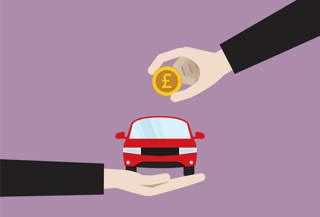The BVRLA is calling for the Government’s introduction of new company car tax bandings to be brought forward, following its announcement that the bandings for zero emission vehicles will drop from 16% to 2% in 2020.
It is also urging HMRC to make a decision on what Advisory Fuel Rates (AFRs) will apply when electricity is used as a fuel type.
However the trade body has welcomed the Government’s attempts to support fleet uptake of ultra-low emission vehicles.
“The company car tax regime is the single most powerful tool policymakers can use to drive behaviour change, but it is not being used effectively.
“By signposting these tax incentives but delaying them until 2020, the government could encourage thousands of pragmatic, cost-conscious drivers to defer the move to low emission motoring,” said Gerry Keaney, BVRLA chief executive.
In last month’s Autumn Statement, the Chancellor unveiled a number of measures aimed at boosting the emerging market for cars emitting less than 75g/km CO2. This included support for workplace charging and the retention of salary sacrifice tax advantages for ULEVs.
The Chancellor also promised a new, more granulated range of company car tax bandings for Ultra Low Emission Vehicles (ULEV) from April 2020. In that month, the appropriate tax rate for zero emission cars will be cut to 2%. This could reduce a basic rate taxpayer’s company car tax bill by around £70 per month.
“It is great to see that the government now has a more comprehensive strategy on ultra-low emission vehicles, which recognises the huge role played by the fleet sector,” added Keaney.
“Our cities are facing an air quality crisis and the government is in danger of missing its longer-term CO2 targets. The Mayor of London and the Environmental Audit Committee have both called for greater government action on road transport emissions now, not in 2020.”
The BVRLA has also welcomed the Government’s decision to exempt salary sacrifice car schemes from the new tax rules coming into effect in April 2017, for those who choose vehicles with emissions of 75g/km or less.
“Salary sacrifice schemes are an extremely valuable employee benefit and the certainty provided by the Autumn Statement means this won’t change,” said Keaney.



















Login to comment
Comments
No comments have been made yet.